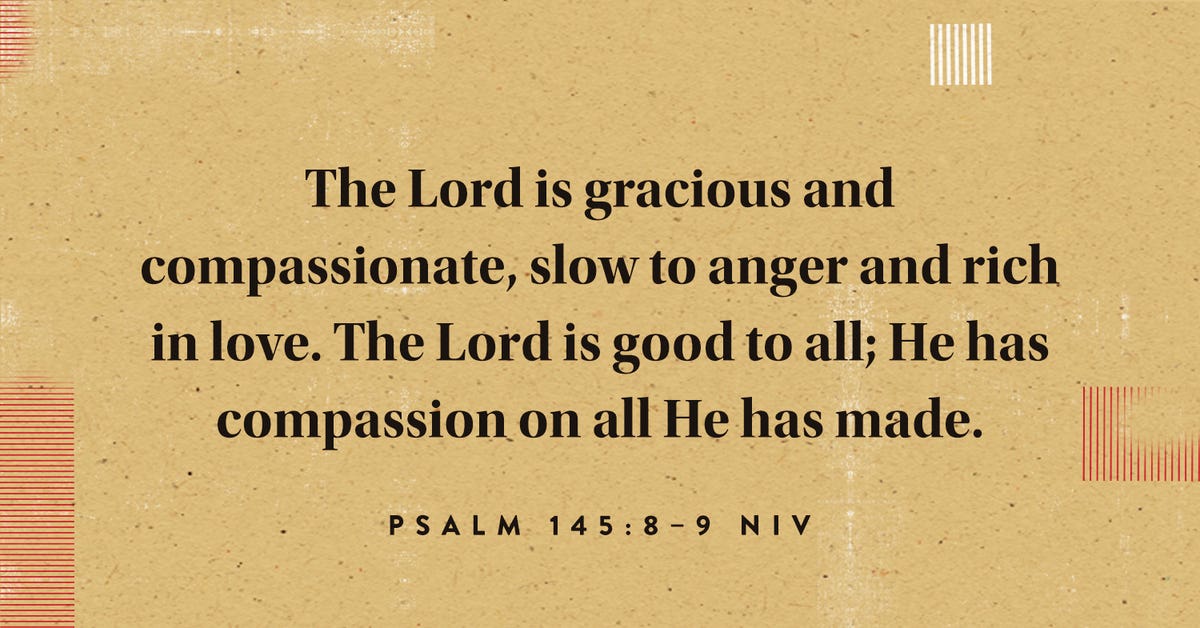You Can't Spell Compassion Without P-A-I-N

Follow your heart. That’s what I do. Compassion is something I have a lot of, because I’ve been through a lot of pain in my life. Anybody who has suffered a lot of pain has a lot of compassion. —Johnny Cash
The Lord is gracious and compassionate, slow to anger and rich in love. The Lord is good to all; He has compassion on all He has made. —Psalm 145:8–9 NIV
Johnny Cash’s words resonate because they get to the heart of our Christian faith. All believers are called to a life of Christlikeness, and compassion is one of the key ingredients of Christlikeness.
Jesus’ life was marked by compassion. The motivation for many of His miracles was His deep concern for the suffering of others.
“And a man with leprosy came to Jesus, imploring Him and kneeling down, and saying to Him, ‘If You are willing, You can make me clean.’ Moved with compassion, Jesus reached out with His hand and touched him, and said to him, ‘I am willing; be cleansed’” (Mark 1:40–41 NASB).
“Seeing the crowds, He felt compassion for them, because they were distressed and downcast, like sheep without a shepherd” (Matthew 9:36 NASB).
What’s more, two of Jesus’ best-known parables teach the importance of compassion. In the story of the prodigal son, the father, who represents God, patiently waits for the return of his wayward child. Notice the father’s initial reaction after seeing his son: “So he set out and came to his father. But when he was still a long way off, his father saw him and felt compassion for him, and ran and embraced him and kissed him” (Luke 15:20 NASB).
In the parable of the good Samaritan, Jesus contrasted the indifference of the religious leaders toward an injured man with the compassion shown by a foreigner. The Samaritan, unlike the religious leaders of the day, was genuinely concerned with other people’s needs. “But a Samaritan who was on a journey came upon him; and when he saw him, he felt compassion, and came to him and bandaged up his wounds, pouring oil and wine on them; and he put him on his own animal, and brought him to an inn and took care of him” (Luke 10:33–34 NASB).
The psalmist, in the passage at the beginning of this devotion, makes it clear that God values and demonstrates compassion. It stands to reason, then, as beings created in His image, that we possess the gift of compassion as well. Like Johnny Cash, we can turn our pain into something valuable. Something that will make a difference in other people’s lives. Something that will point them toward God, the source of perfect compassion.
To do that, we first must find healing from our own pain. We can’t show others the way if we haven’t traveled the path ourselves. Second, we must find the courage to reach out to other hurting people. Third, we must find common ground with them—not because we know exactly what they’re going through, but because we traveled similar ground. Fourth, we must find ways to apply the lessons of our own healing to their situation. Fifth, we must pray for God’s continued healing in their lives.
Father, thank You for showing compassion to me—for reaching out when I struggled, for encouraging me when discouragement threatened to immobilize me, for giving me a sense of purpose when I could find none. Help me turn my own pain into something valuable to others. Give me the perspective and wisdom to show healing compassion to people who need it. In Jesus’ name. Amen.
This is an excerpt from Walking the Line: 90 Devotions of Truth and Hope Based on the Faith of Johnny Cash – a new devotional now available on DaySpring.com. Shop all books, journals, and devotions from DaySpring here.



Leave a Comment